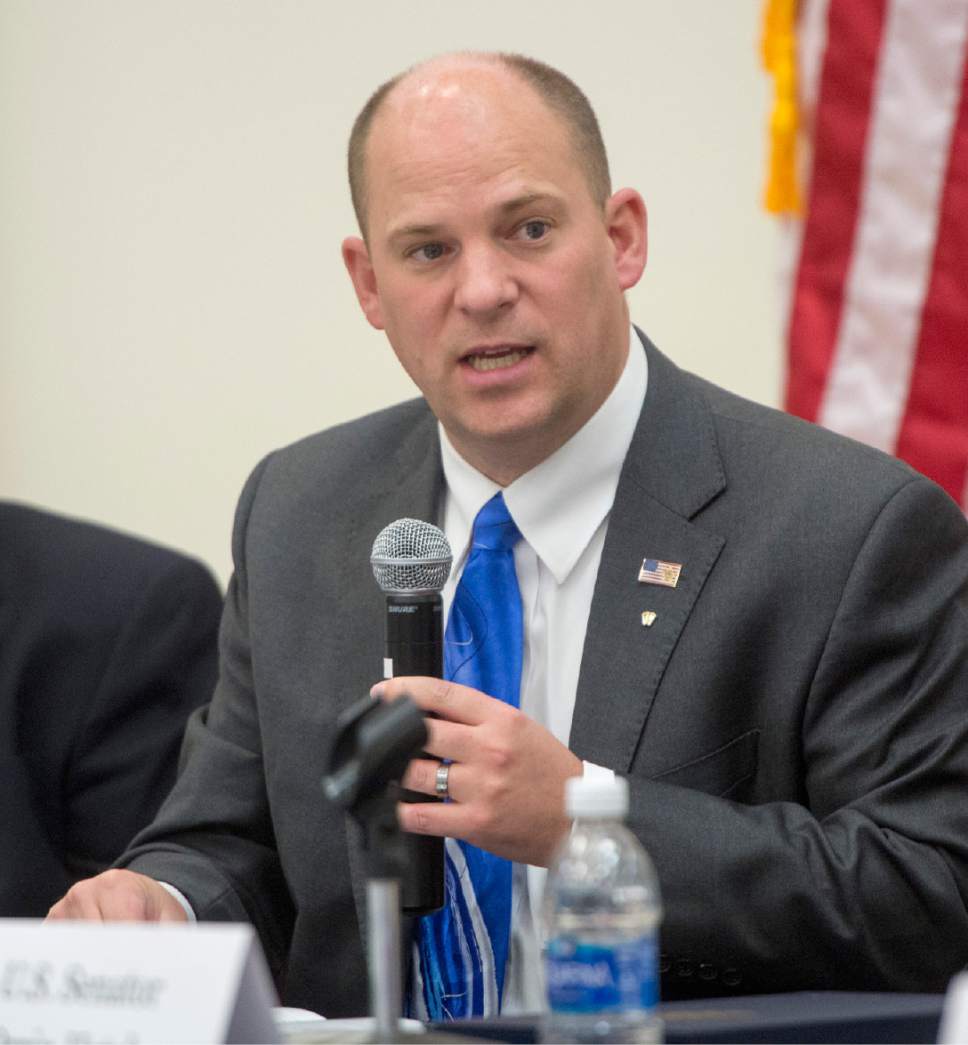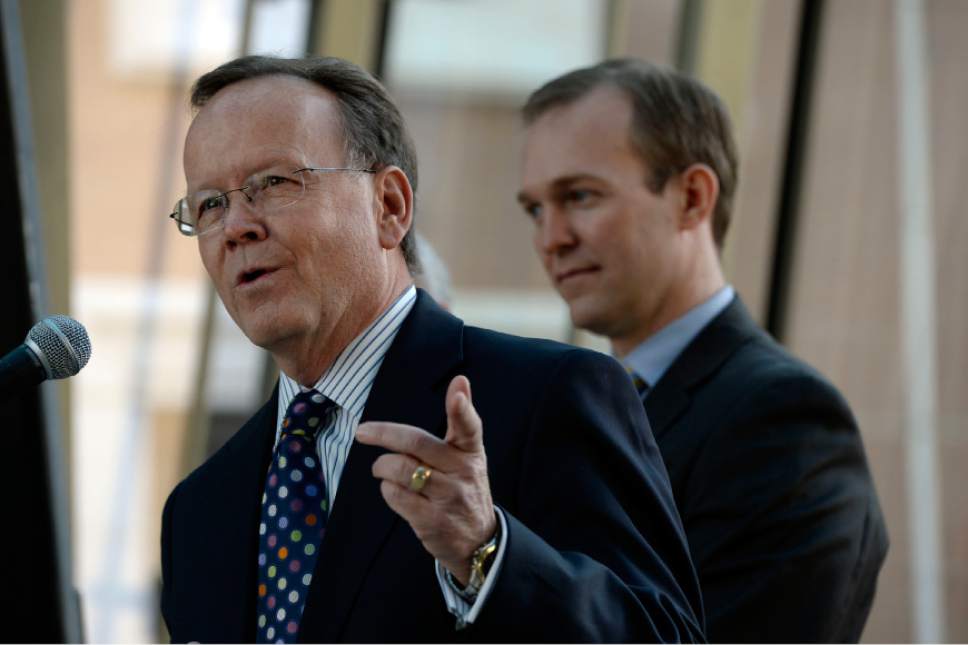This is an archived article that was published on sltrib.com in 2017, and information in the article may be outdated. It is provided only for personal research purposes and may not be reprinted.
In January, about 300 people had to be evacuated from the I.J. and Jeanne Wagner Jewish Community Center because of a bomb threat — one of 90 such threats against Jewish centers across the country this year.
Nobody was hurt in the threat against the center in Salt Lake City, but it demonstrates that Utah is not immune to the disturbing rise of xenophobia, racism and religious-based hatred in the country.
In recent weeks, dozens of headstones were toppled in a Jewish cemetery in Missouri, and in Kansas two Indian immigrants were shot, one killed, by a man who reportedly shouted at them to "Get out of my country." On Tuesday, Buzzfeed reported that four mosques had been burned this year, three of them cases of suspected arson and the fourth still under investigation.
Utah lawmakers had an opportunity this legislative session to respond forcefully, to give prosecutors a workable hate- crimes law and to make a clear statement: that we are one community and no one will be allowed to terrorize or attack members of our community for their beliefs or the color of their skin.
Instead, the Utah Senate made a very different statement. Lawmakers turned their backs on those who would be protected — essentially, all of us — by the hate crimes legislation and killed SB72 in a backroom, without even allowing the bill to have a public hearing.
Sen. Daniel Thatcher, R-West Valley City, the sponsor of the bill, said he had 12 of his Republican colleagues committed to supporting the measure. Along with the five Democrats, he would have had more than the 15 votes needed to get it through the Senate and over to the House.
"I flipped people I didn't think there was a chance in hell I'd be getting, but we still have more work to do," he said.
But, Thatcher said, while he had the votes, he didn't have "the right votes."
The bill was written to allow enhanced penalties for crimes that target a victim or group of victims because of their "ancestry, disability, ethnicity, gender, gender identity, national origin, race, religion, or sexual orientation."
It had the backing of the state's Law Enforcement Legislative Committee, made up of police, sheriffs and prosecutors, all of whom considered it to be one of their top priorities this session. And The Church of Jesus Christ of Latter-day Saints, which opposed similar legislation last year, likely leading to its defeat, had remained neutral.
Still, the bill never got its chance because the Senate Rules Committee didn't let it have a shot at a committee hearing.
Senate Rules Committee Chairman Deidre Henderson, R-Spanish Fork, said Thatcher's bill simply didn't have the votes to get out of her committee.
Last year, when similar hate-crimes legislation failed in the Senate, five of the six Republicans on the committee, including Henderson, voted against it.
"The bill sponsor didn't have the votes to get it passed, so we just left it there," Henderson said. "This is a sensitive issue for a lot of people, and he early on wanted to talk to his colleagues about the issue and make sure he had the support. … I haven't heard he has it."
Others who were involved in the legislation, however, say that Senate leaders, in particular Senate Majority Whip Stuart Adams, a Layton Republican and outspoken opponent of hate-crimes legislation, quietly killed the bill.
Adams denies that's the case, although he doesn't like the concept of hate-crimes legislation.
"I just have a real challenge that a guy in a cowboy hat outside of a bar gets beat up and somebody that is a protected class outside of a bar gets beat up [and] the guy in the cowboy hat doesn't get taken care of," Adams said.
Adams said it also goes against legislative efforts through the Justice Reinvestment Initiative to reduce the lengths of sentences. He said while his own strong feelings may have influenced some of his colleagues, he didn't use his position to try to bury the legislation.
It is easy to blame President Donald Trump's flirtation with the alt-right and white nationalists, his anti-Muslim and anti-immigrant rhetoric for the virulent strain of hate we are witnessing in this country. Probably too easy.
Whatever the causes, the Utah Legislature had an opportunity to craft another of its vaunted "Utah solutions" to the problem. Instead, lawmakers turned a blind eye and refused to stand up for those in our community in need of the fullest protection of the law.
gehrke@sltrib.com Twitter: @RobertGehrke









